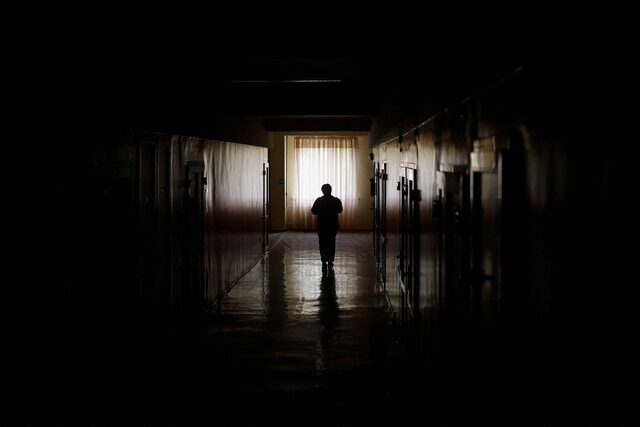-
A maternity hospital employee carries to patients meals provided by the NGO World Central Kitchen, during an electricity power cut.
The National Department of Health says they have already begun implementing short, medium and long-term load reduction interventions for all health facilities across the country.
This was heard during their presentation at the South African Human Rights Commission (SAHRC) National Investigative Inquiry into the Impact of Load Reduction on Human Rights.
The inquiry was set up following growing concerns and complaints received from some quarters of society that, while South Africa is experiencing a reprieve from load shedding, load reduction is seemingly ongoing.
“The short term is where we seek the exemption of key hospitals on the grid from load shedding, of which 76 hospitals benefitted. On the medium term, we have conducted with the CSIR a report to back up the solar energy solutions roll-out to healthcare facilities. The third one, and that is the long-term, is that it covers the installation of dedicated lines to all the hospitals identified by Eskom itself,” says the Health Department’s Christoffel Engelbrecht.
VIDEO | SAHRC Load Reduction Inquiry:
Meanwhile, City Power says among the reasons for the implementation of load reduction in the City of Johannesburg, is the rapid increase in population density, which is putting severe strain on the electricity grid.
This was heard during their presentation at the inquiry.
City Power’s General Manager Lerato Kgalema says due to the excessive pressure on the power grid, load reduction is essential to avoid a catastrophic, long-term failure.
“Johannesburg’s rapid urbanisation and increased population density have significantly impacted the electrical network, often pushing substations on their maximum capacity. In response, City Power explored a short-term, medium-term intervention to stabilise supply and prevent the widespread failure and sustain the network reliability.”
“Load reduction serves as a productive measure to mitigate the risk of catastrophic infrastructure failure which could lead to prolonged outages affecting local economies and community livelihoods,” insists Kgalema.











